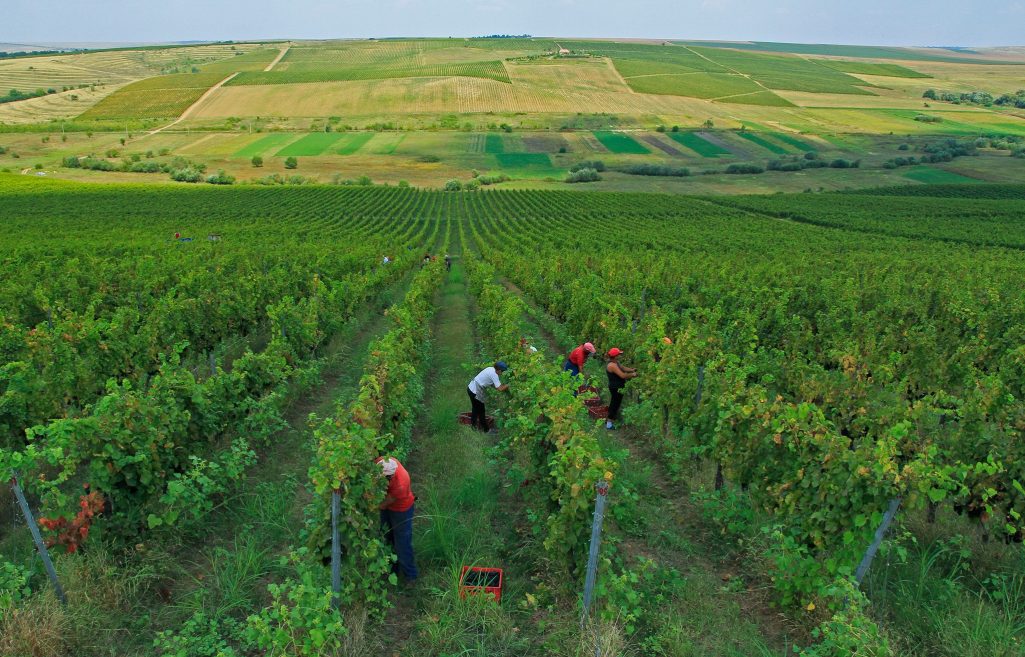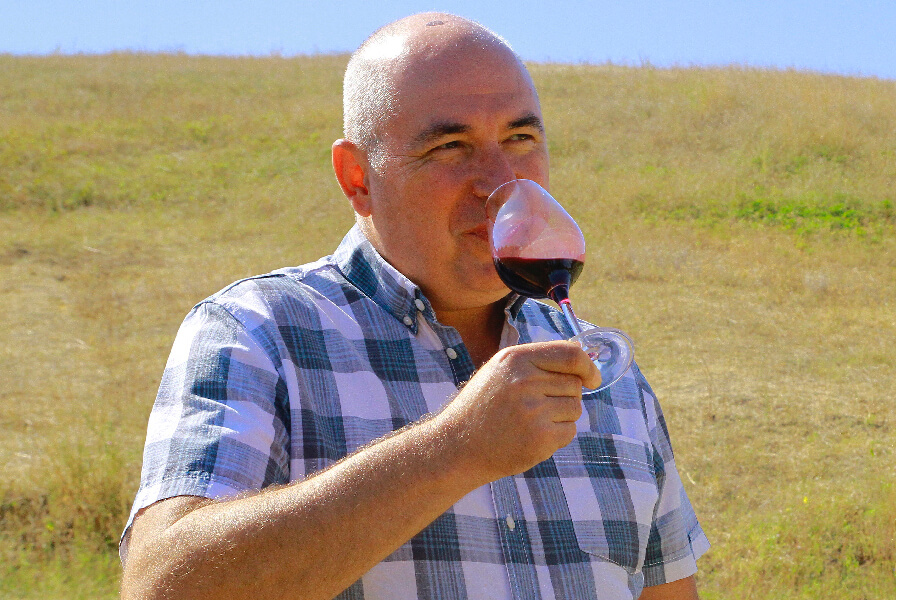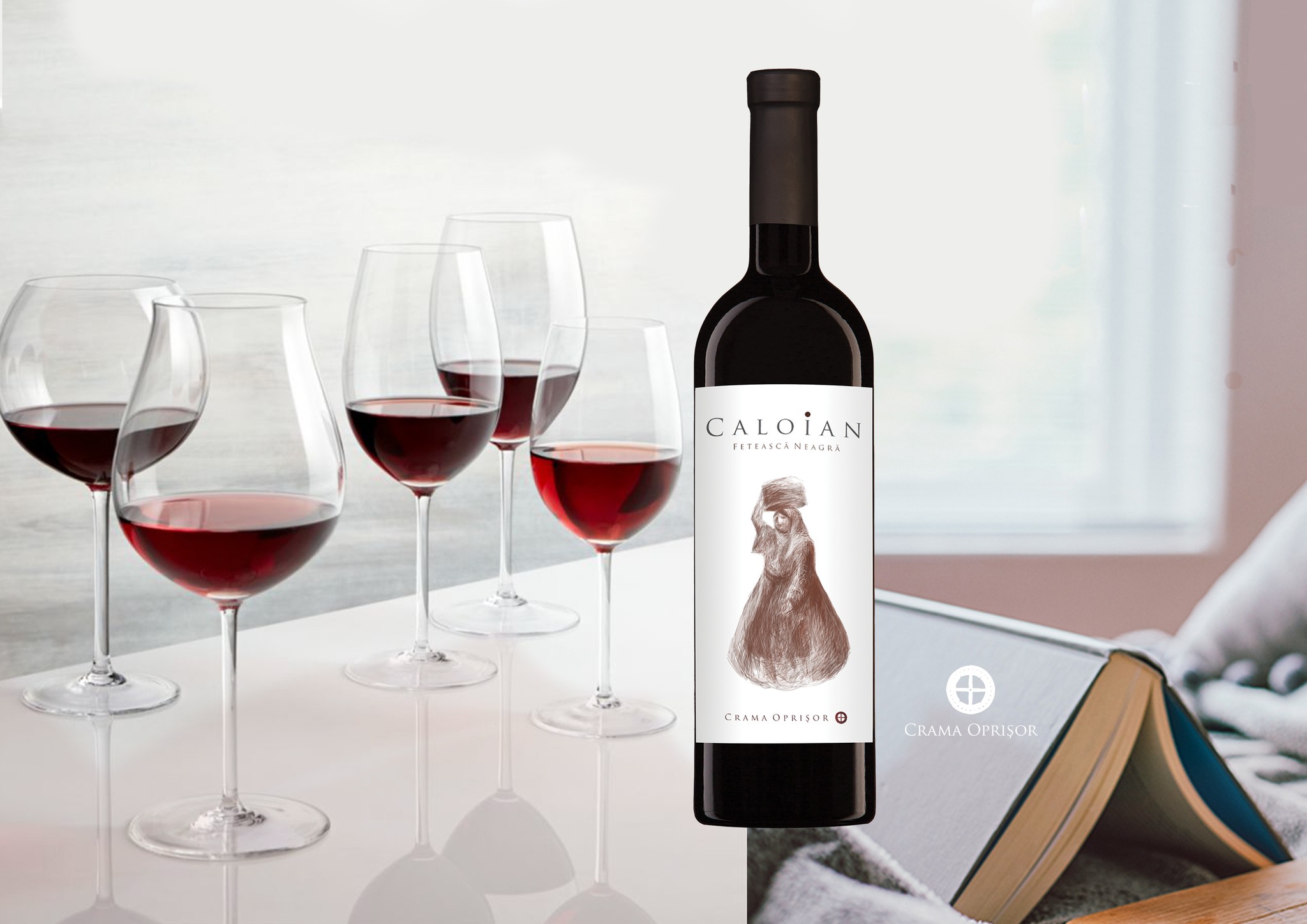Discover how Crama Oprișor brings together Romanian tradition, artistic winemaking, and international success in this exclusive interview with General Manager Gabriel Roceanu.

MOVIN: Can you tell us a bit about Crama Oprișor and its history?
Gabriel Roceanu: Crama Oprișor is not just a winery—it’s a story told through wine. We are located in the heart of Oltenia, one of Romania’s most characterful wine regions. The estate spans over 250 hectares, and since the early 2000s, we’ve been focused on crafting wines that truly reflect the place and the people behind them. Over time, our dedication to terroir and storytelling has positioned us as one of the most distinctive producers in the country.

MOVIN: How would you describe the terroir of Oltenia and what makes it special?
Gabriel Roceanu: Oltenia’s terroir is rich and expressive. We benefit from a diverse landscape—rolling hills, clay-limestone soils, and a generous amount of sunshine. The temperate-continental climate helps develop complex aromatics and vibrant structure in the grapes. But what really sets Oltenia apart is its soul—there’s something poetic in the way the land speaks, and we do our best to translate that into every bottle.
MOVIN: Your portfolio is broad. Which grape varieties or labels best represent your philosophy?
Gabriel Roceanu: The "Caloian" range is perhaps our most emblematic—it’s approachable, fresh, and honest, perfect for everyday wine lovers but with an unmistakable personality. Then there are our more premium lines—wines like "Smerenie" or "Drăgaica Roșie"—which allow us to explore deeper, more contemplative themes.
We work with a blend of international and indigenous grape varieties: Cabernet Sauvignon, Merlot, Pinot Noir, Syrah, but also Fetească Neagră and Tămâioasă Românească. Every wine is crafted with care, reflecting both our vision and the land’s voice.

MOVIN: What is the guiding philosophy behind Crama Oprișor’s winemaking vision?
Gabriel Roceanu: The future is always a projection—an abstract sketch shaped by our aspirations and desires. At Crama Oprișor, we set perspectival reference points—guiding stars that help us navigate the path forward.
Our strategy is built around nurturing creativity and preserving freshness. We never want to waste an opportunity to innovate. Each year, we aim to create original, high-performance wines that not only meet expectations but also surprise and inspire. At the same time, we work to elevate our existing ranges by giving them lasting value and consistency.
Wine, in our view, is more than a product—it’s a pillar of national culture. That’s why we’re deeply involved in cultural and educational initiatives. We want people who encounter our wines to discover them beyond common perception, to share in the values we believe in, and to connect with a region that encapsulates the Romanian spirit—Oltenia. It's a land full of identity, and we’re proud to share its unmistakable character with the world.
MOVIN: Caloian wines are also featured in Delhaize stores. What does this partnership mean for Crama Oprișor?
Gabriel Roceanu: Being part of Delhaize’s wine selection is a big step forward. It allows us to share Romanian wines with a wider audience, especially in Belgium and Luxembourg, where interest in Eastern European wines is growing. Caloian fits perfectly—it’s accessible yet distinctive, making it a great ambassador for our winery and the region.
MOVIN: How do you approach export and global expansion?
Gabriel Roceanu: Export is essential for us. Romanian wine has so much to offer, and part of our mission is to bring that story to the world. We’re proud to act as ambassadors for both Oltenia and the broader Romanian wine scene. Our strategy combines authenticity with consistency—we want people to recognize our style wherever they are.
MOVIN: Where are your strongest international markets today?
Gabriel Roceanu: Belgium and Luxembourg are definitely among our top markets, especially through our collaboration with Delhaize. But we also have successful partnerships in China, USA, Germany, Switzerland, Poland, Czech Republic, Cyprus, Estonia, Lithuania, Austria, Latvia, France, Sweden, and of course Romania. Each market has its own rhythm and preferences, and we enjoy the challenge of adapting while staying true to who we are.
MOVIN: What’s next for Crama Oprișor?
Gabriel Roceanu: We’re always experimenting—new blends, small-batch releases, and fresh interpretations of traditional grapes. But one thing never changes: our belief that wine is a form of cultural expression. We’ll continue to innovate, but always with respect for tradition and terroir.
MOVIN: In one sentence—how would you describe Crama Oprișor?
Gabriel Roceanu: Crama Oprișor is where passion, place, and artistry come together to create wines with soul.
MOVIN: We wish you all the success in your future endeavors. Thank you for taking the time to share your story and passion with us.
Gabriel Roceanu: Thank you for having us. It has been a pleasure to share our journey and vision with you. Cheers to the love of wine and the traditions that enrich our craft.

Don't forget to check out the products from Crama Oprișor Winery.